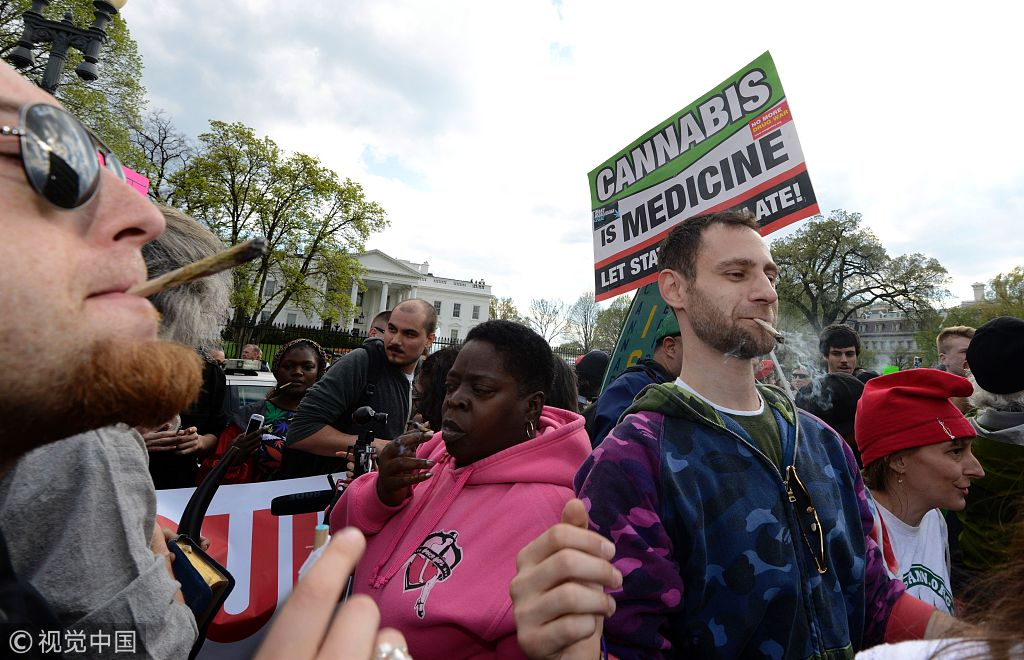
High potency pot 'strongly linked' to psychosis: study
High potency cannabis, especially when used daily, is "strongly linked" to the risk of developing psychotic disorders such as schizophrenia and paranoia, scientists said Wednesday.
In Amsterdam and London -- where high-THC (tetrahydrocannabinol) marijuana has long been the rule rather than the exception -- 50 and 30 percent of new psychosis cases, respectively, were associated with potent forms of the drug.
The findings, reported The Lancet, bolster a growing body of research connecting pot to a range of mental Health disorders.

Advocates for the legalization of marijuana light up in front of the White House during a demonstration by dozens 02 April, 2016 in Washington, DC. /VCG Photo
With piecemeal legalization and decriminalization, consumption in North America and Europe has increased markedly over the last two decades, even as levels of the drug's mind-bending molecule, delta-9-THC, have risen four- or five-fold.
"The use of cannabis with a high concentration of THC has more harmful effects on mental Health than the use of weaker forms," said lead author Marta Di Forti, a professor at the Institute of Psychiatry, Psychology, and Neuroscience at King's College London.
"Our findings also indicate for the first time how cannabis use affects the incidence of psychotic disorder at a population level."
Across 11 European cities or regions, and a 12th in Brazil, one in five new cases of psychosis were associated to daily cannabis use, and one in ten to high potency pot, the study found.

A woman smokes marijuana during a global March for marijuana in Medellin, Colombia, May 7, 2016. /VCG Photo
Trainwreck, gorilla glue
If high-THC cannabis -- including strains such as "trainwreck", "gorilla glue", and "hindu kush" -- were no longer available, "12 percent of cases of first-episode psychosis could be prevented across Europe," the researchers calculated.
In Amsterdam, the incidence of first-time psychosis would likely drop from 38 to 19 per 100,000 people per year, while in London, the number of cases would decline from 46 to 32 per 100,000 people.
"As the legal status of cannabis changes in many countries and states, and as we consider the medicinal properties of some types of cannabis, it is of vital public Health importance to consider the potential adverse effects that are associated with daily cannabis use, especially high potency varieties," said Di Forti.

A protestor smokes cannabis outside the Parliament during a march calling for the legalization of the drug, in Cape Town, South Africa, May 5, 2018. /VCG Photo
While the correlation between marijuana use and mental disorders was strong, a cause-and-effect relationship can only be inferred, the authors cautioned.
However, the registrar at the Royal College of Psychiatrists, Adrian James, said the findings were to be "taken seriously," and that his institution "is reviewing the mental Health effect of cannabis use."
David Nutt, head of the center for Neuropsychopharmacology at Imperial College London, said it was "important to realize that THC is well known to produce psychosis in Healthy volunteers -- people without a predisposition to mental illness".
(CGTN)

